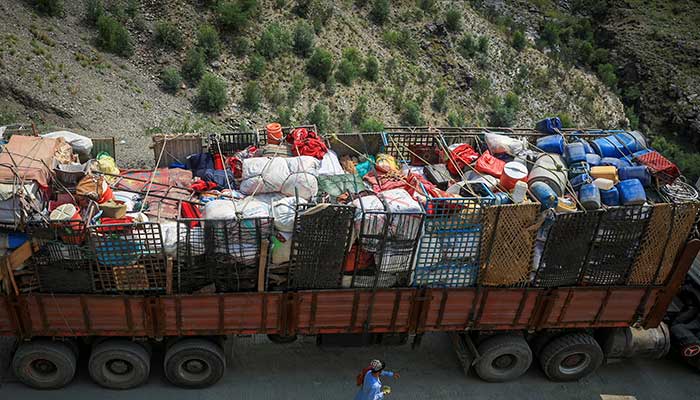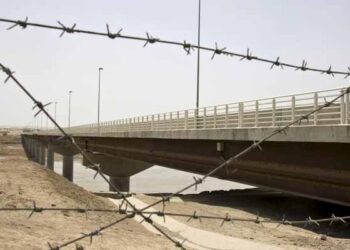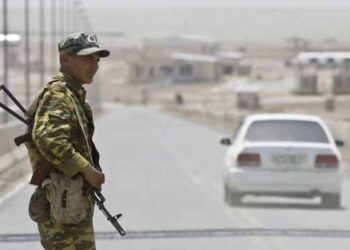Select Language:
A man walks past a truck filled with belongings of Afghan nationals as they head back to Afghanistan after Pakistan began deporting documented Afghan refugees near the Torkham border crossing between Pakistan and Afghanistan on September 1, 2025. — Reuters
– Pakistan targets 1.3 million Proof of Registration (PoR) holders for deportation efforts.
– Thousands cross through Chaman and Torkham daily, fearing arrest.
– UN High Commissioner for Refugees, Filippo Grandi, emphasizes the urgent need for aid in Afghanistan and urges donor support.
The UN refugee chief has called on Pakistan to halt its large-scale expulsions of Afghan refugees following a deadly earthquake in eastern Afghanistan that caused nearly 1,500 fatalities.
“Given these circumstances, I appeal to Pakistan to pause the implementation of the Repatriation Plan for Illegal Foreigners,” Grandi stated on X, warning that people being forced to leave are returning to a disaster zone.
His appeal coincided with rescue teams struggling to reach earthquake survivors after a shallow magnitude-6.0 quake struck the mountainous region along the Pakistan-Afghanistan border late Sunday night, collapsing mud-brick homes as families slept.
Taliban authorities report 1,469 deaths and over 3,700 injuries, affecting more than 500,000 people—a tragedy considered one of the deadliest earthquakes in the country in decades.
Pakistan has hosted Afghan refugees fleeing conflict for over 40 years, from the Soviet invasion to the Taliban’s return in 2021. Some refugees are native to the country, while others await transfer to third-party nations. Many have found varying levels of stability, including access to employment and education.
However, in 2023, Islamabad launched a crackdown citing an increase in militant attacks and insurgencies, labeling the refugee population as “terrorists and criminals.” Since then, over 1.2 million Afghans have been forcibly sent back, including more than 443,000 just this year, according to the UN.
The current effort is mainly aimed at 1.3 million refugees holding UNHCR-issued Proof of Registration cards, with a September 1 deadline for departure, or risk arrest and deportation.
UNHCR spokesperson Babar Baloch told reporters in Geneva on Tuesday that the agency is preparing for a significant increase in returns over the next few days due to the approaching deadline.
Border officials report a notable surge in crossings since the deadline passed. At the Chaman border crossing, over 4,000 individuals have left, according to local administrator Habib Bangulzai. On the Afghan side at Spin Boldak, registration officer Abdul Latif Hakimi indicated that 250 to 300 families are returning daily since August 31.
At the Torkham crossing further north, more than 6,300 PoR holders returned Tuesday alone, with nearly 63,000 recorded entering Afghanistan since April. Data from UNHCR shows that between August 24 and 30, there was a sharp increase in crossings, with 25,490 returnees, including 13,525 PoR cardholders.
Analysts believe these expulsions are aimed at exerting pressure on the Taliban government, which Pakistan accuses of harboring militants responsible for an uptick in border attacks. The Taliban deny the allegations.
Grandi reiterated that international support, including from Pakistan, remains critical and appreciated as Afghanistan deals with the aftereffects of the earthquake.







